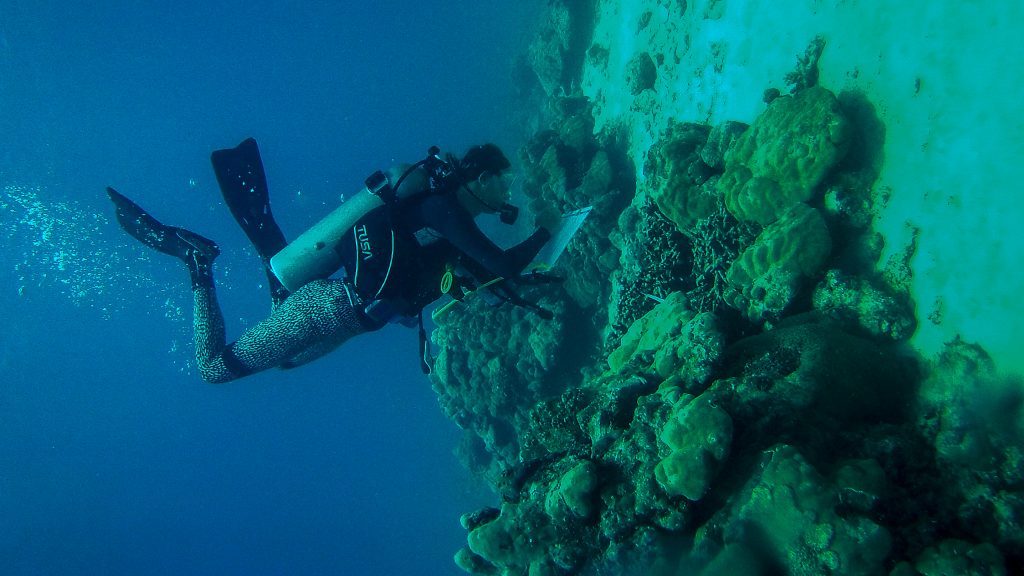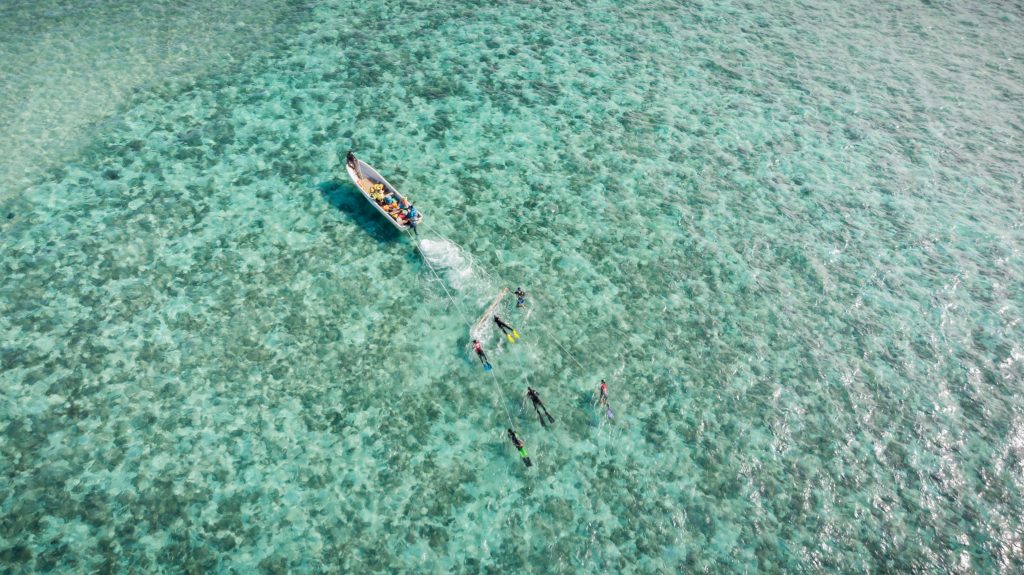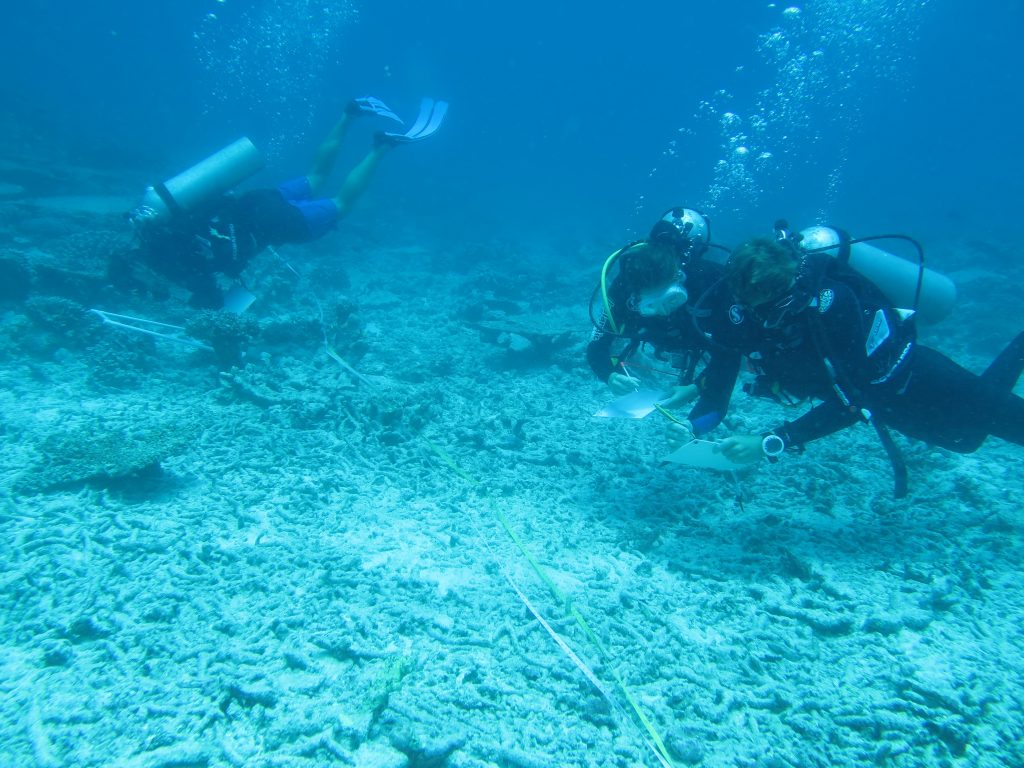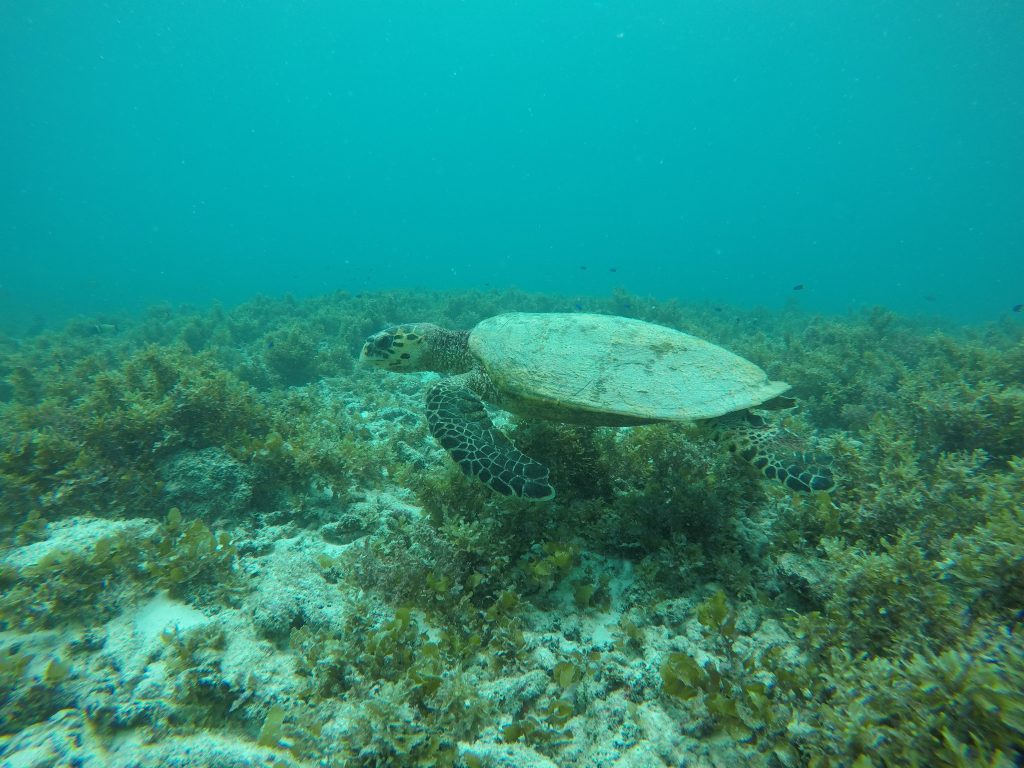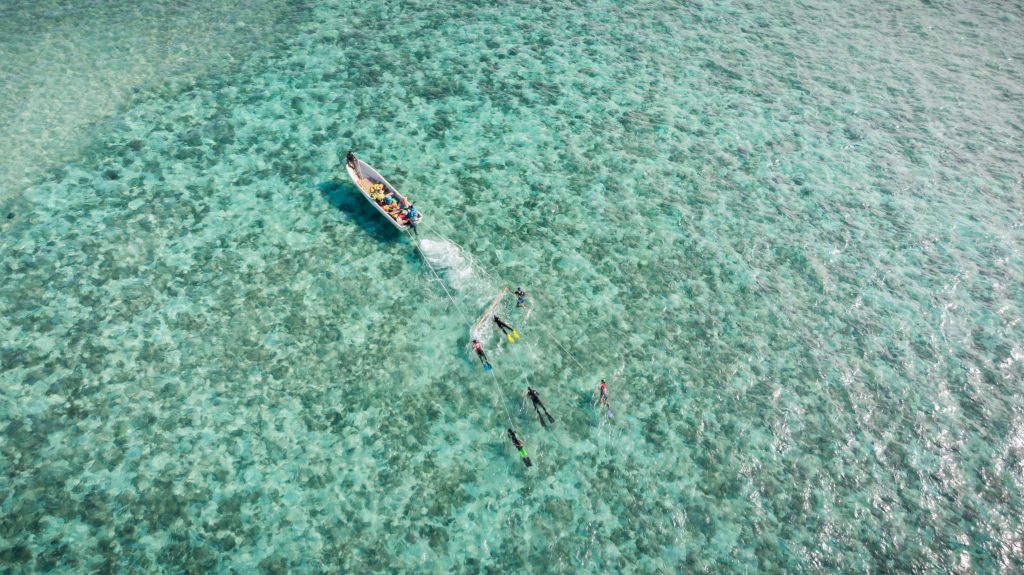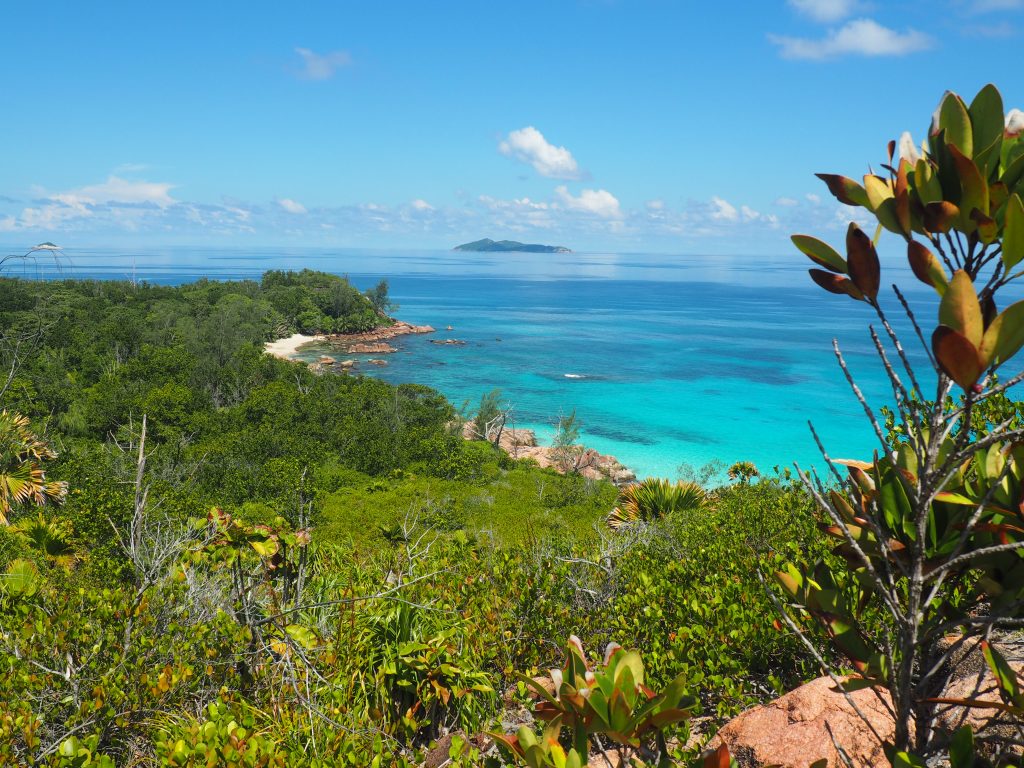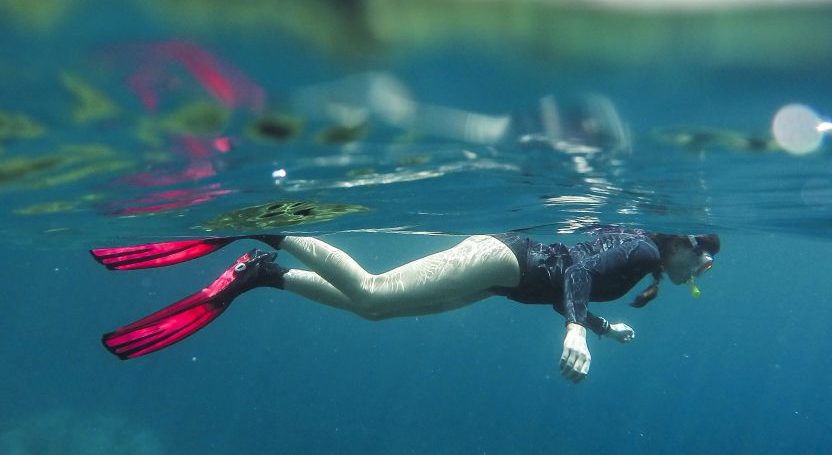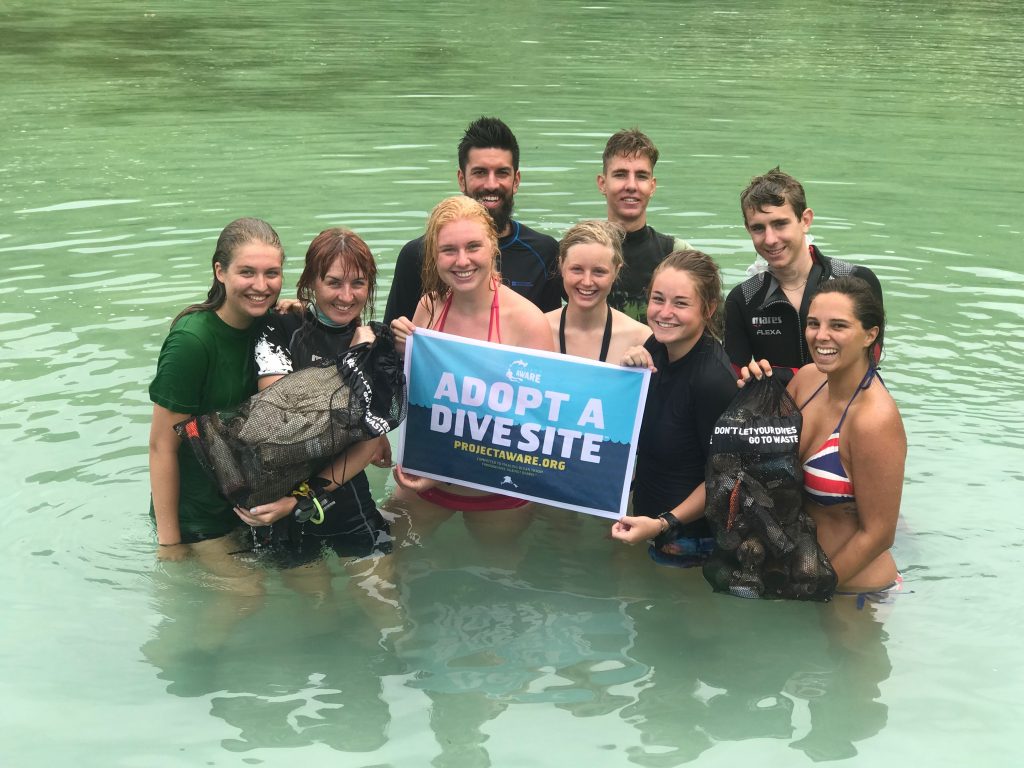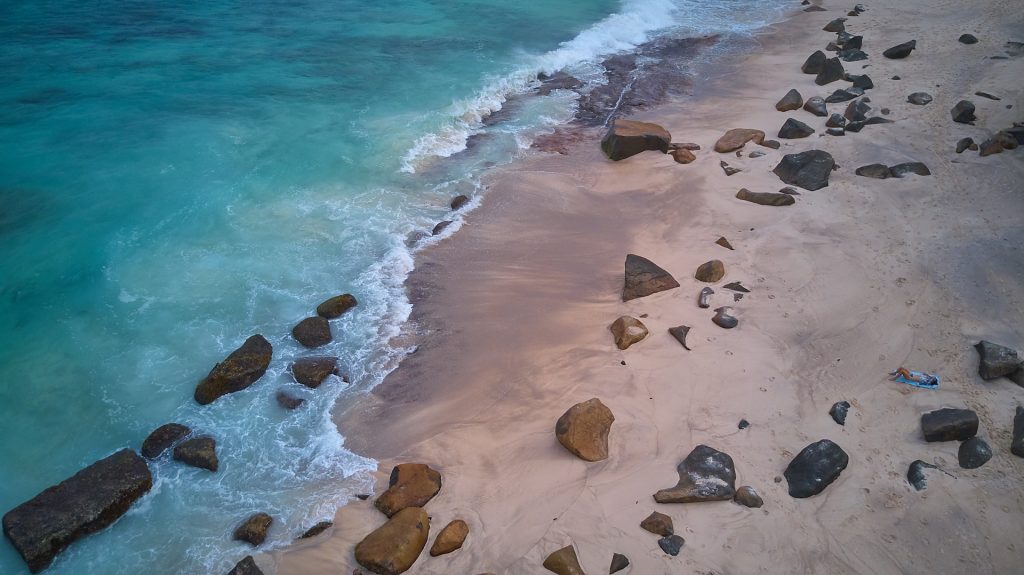Climate Change And Coral Bleaching in Seychelles
- Experiences | Vol and Intern
-
Conservation Careers
- Seychelles
- Posted
11 months ago
-
Conservation Careers
Climate Change And Coral Bleaching in Seychelles
- Experiences | Vol and Intern
-
Conservation Careers
- Seychelles
- Posted
11 months ago
-
Conservation Careers
Overview
Collect data on coral reef health and recovery following climate-change-induced coral bleaching events while earning your PADI Advanced Open Water and PADI Coral Reef Research Diver qualifications.
Travel to the warm, crystal clear waters of the Indian Ocean to contribute to coral reef recovery research and coral rehabilitation. Learn about how climate change is causing coral bleaching, what is being done to limit the damage, and encourage recovery. In the process, earn your PADI Advanced Open Water and PADI Coral Reef Research Diver Speciality.
Overview
On this program, you will be trained up on diving best practices and earning your PADI Advanced Open Water certificate before starting your monitoring of the reef. Please note that you will need to be PADI Open Water certified before joining this program. Receive the Coral Reef Research Diver Distinctive Speciality segment of the PADI Divemaster course. This unique offering teaches you about best practices when conducting underwater coral reef surveys. This is offered to participants staying for 2 weeks or longer.
After completing your dive training and learning how to identify coral species and how to carry out different coral monitoring techniques, you will assist our international team of researchers to monitor specific dive sites for coral reef recovery. Depending on weather conditions, we aim for all participants to have the opportunity to experience one or two dives or snorkels per day during weekdays. All the data collected on these dives is passed on to the Seychelles National Parks Authority, for use in their management decisions.
You will also have the opportunity to participate in our coral reef rehabilitation initiatives, where we work to grow the most resilient coral in shallow water, protected coral nurseries and then transplant the, now larger and more established, corals onto the reef.
Highlights include:
- Assist with coral reef recovery research, coral reef rehabilitation, and other marine conservation initiatives.
- Contribute to United Nations Sustainable Development Goal #14, Life Below Water.
- Earn your PADI Advanced Open Water certificate.
- Complete a unique qualification, the PADI Coral Reef Research Speciality.
- Experience diving in a destination renowned as one of the top diving sites in the world. Explore various dive sites searching for the incredible ‘mega-fauna’ in the region, such as sharks, rays, and dolphins. Take other extra dive courses with local dive shops.
Our Award-winning Partner
Conservation Careers has teamed up with an award-winning, mission-driven organisation with a team of passionate experts across the globe who will make your experience a truly unforgettable one.
Founded in 1998, they run programs in 21 locations, in 13 countries around the world, each aligned to the 17 United Nations Sustainable Development Goals as well as the objectives of local partners. They welcome participants from all around the world and help facilitate their development into global citizens. This is how they achieve their mission of building a global network of people united by their passion to make a difference.
Their commitment to running high-quality sustainable development and experiential education programs has earned them recognition from numerous organizations such as Panthera, the Seychelles Parks & Gardens Authority, as well as Stanford, NYU, Duke, and Ohio State.
If you register your interest below, you’ll put you in touch with our partner to take the booking and to plan your trip!
To see all our Conservation Careers Internship opportunities, please click here.
Location and Life on Base
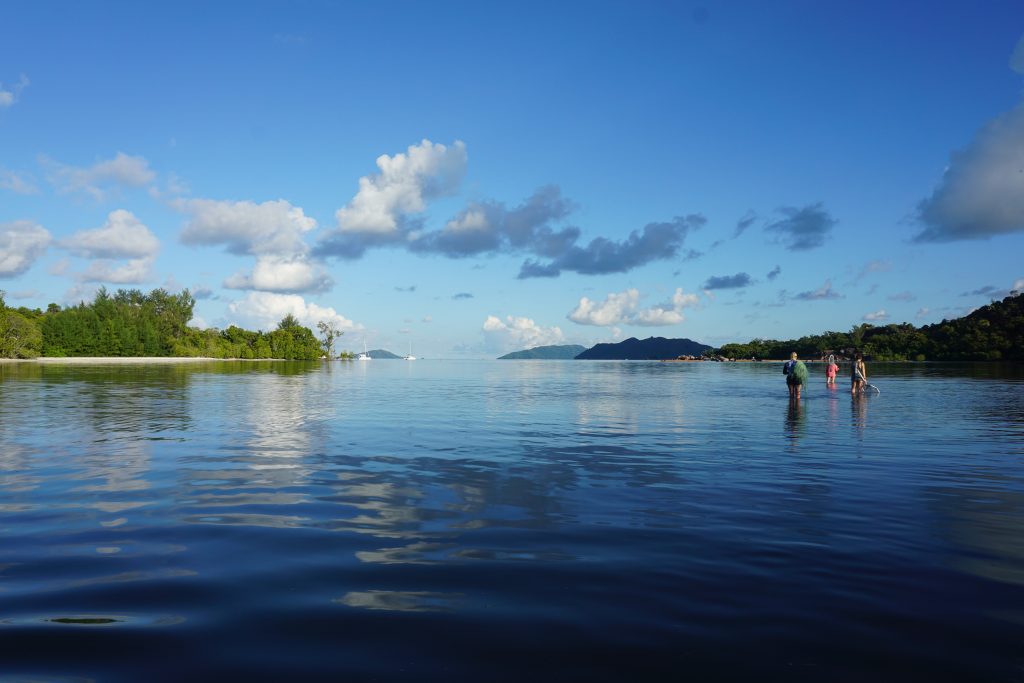
Project Details
Coral bleaching occurs when vibrantly coloured algae that live symbiotically on coral structures flee as a result of environmental stress such as warming water. Without the alage, corals lose their main food source and become more brittle as well as more susceptible to disease.
Over the past two decades, several ocean warming events, also known as El Niños, have been recorded. It has been shown that these events are tied to overall global warming caused by an overabundance of carbon dioxide in the atmosphere, a result of relying on fossil fuels for human energy needs.
During the ocean warming event of 1998, it is estimated that the Seychelles lost up to 90 per cent of its coral reefs. During this time initiatives were begun to monitor coral reef recovery. We have been monitoring coral reefs in the Seychelles since 2004 in partnership with The Seychelles Centre for Marine Research & Technology, SCMRT, the Seychelles National Parks Authority, SNPA, and Reef Care International. We were monitoring the reef during the 2016 coral bleaching event.
Besides participating in coral reef recovery monitoring and coral reef rehabilitation, volunteers should expect to get involved in a range of activities, mostly land-based, centred around United Nations Sustainable Development Goal #14, Life Below Water. Some of these might include beach and ocean floor cleanups and subsequent marine debris surveys and environmental education sessions with the local community.
Weekends are yours explore the stunning scenery and the unique Creole culture of the Seychelles. Book a recreational dive to spot manta rays and dolphins, go hiking up Morne Blanc or Morne Seychellois, go island hopping around the more than 100 islands of the Seychelles archipelago, or visit the capital of Victoria to sample Seychellois cuisine.
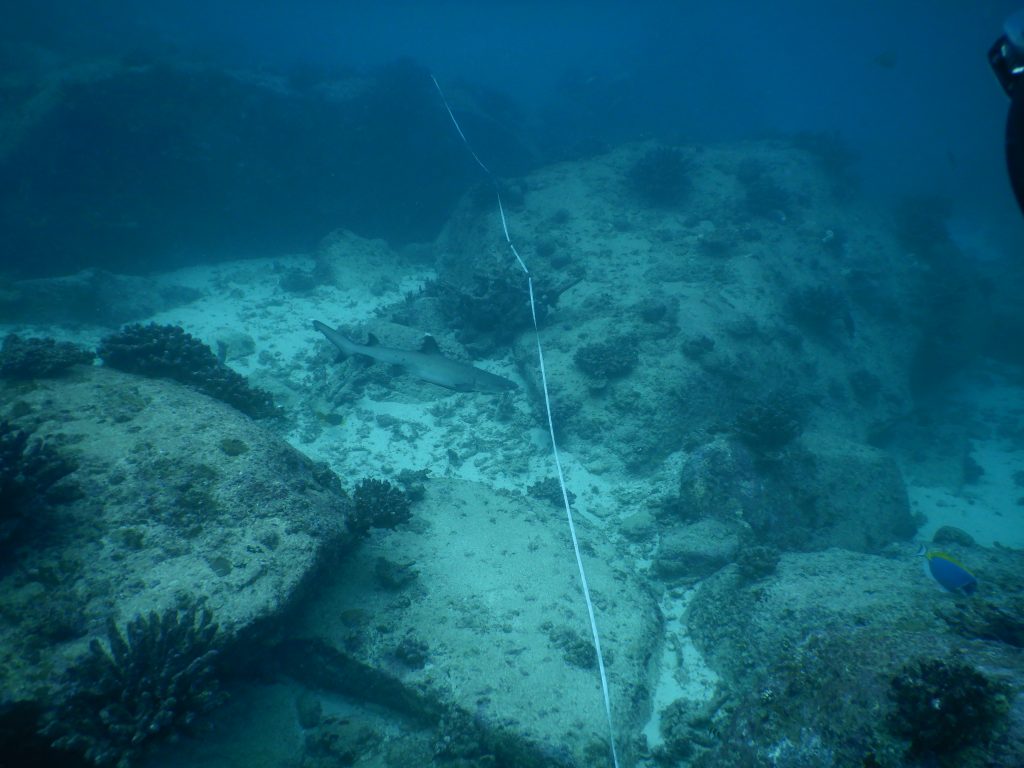
How this project makes a difference
This program has short, mid and long-term objectives that fit with the United Nations Sustainable Development Goals or UN SDGs. This enables reporting on collaborative impact across the world in a streamlined manner, measuring which UN SDGs we are making a substantial contribution to. Furthermore, this will help local partners and communities measure and visualise their contribution to the UN SDGs.
Upon arrival to base, you will be educated about the history of the UN SDGs. You will learn about the specific goals of your location, the long-, mid- and short-term objectives, and also clarification of how your personal, shorter-term involvement contributes to these goals on a global level.
The aim is to educate you on local and global issues, so that you continue to act as active global citizens after your program, helping to fulfil our mission of building a global network of people united by their passion to make a difference.
The importance of healthy corals
Healthy corals are key to the health of our planet. They help fish populations regenerate themselves providing shelter for young fish, they assist in removing excess carbon dioxide from our atmosphere, and protect living spaces near the shore from damage by waves and storms.
In 1998 a massive coral bleaching event decimated many coral reefs around the globe, including the reefs surrounding the inner granitic islands of Seychelles. Coral bleaching occurs when rising water temperatures cause the algae that live on corals to detach themselves from their hosts. Algae is the main food source for corals and helps to maintain the structure of the corals. Warm waters are the result of climate change caused by excess carbon dioxide in the atmosphere.
Efforts to monitor the recovery of reefs in Seychelles were initiated after the 1998 event. This began with a 3 year project, named the Shoals of Capricorn, which extensively monitored the entire inner islands. The Seychelles Centre for Marine Research & Technology, SCMRT, was set up at this time to continue the work, and to aid the Seychelles National Parks Authority, SNPA, with the management of the marine parks. After the Shoals of Capricorn project the monitoring was then taken over by Reef Care International.
In addition to the high seasonal sea temperatures, the coral reefs around Seychelles, face numerous other threats such as population pressure, poaching, and unsustainable tourism, all of which are challenging to quantify without a solid, scientific basis. In order to effectively manage and conserve the reef, a continuous monitoring program is necessary to build up a comprehensive picture of the ecological health of the reef.
Coral and Fish Surveys
This project was established in Seychelles in 2004 with the aim of aiding SNPA. At over 20 sites across the North-West coast of Mahe, staff and participants use the protocols of Reef Care International in order to survey the reefs noting the health of existing coral, evidence of new young coral growing on the reef, as well as fish species present and their numbers. Data on coral recovery, as well as fish abundance and diversity is passed on to the SNPA to assist with their management decisions, which might include updates to policies, expanding currently protected areas, or protecting additional areas. In addition, participants use a different coral monitoring technique, to provide data to CoralWatch, a worldwide coral monitoring methodology, based in Queensland University, Australia, which aims to monitor coral bleaching and recovery events around the globe.
Commercial Marine Species Surveys
Unsustainable fishing is also a threat to the health of the Seychellois marine life. In addition this also affects the wellbeing of the local community, because many rely on fish for daily sustenance, and the growth of the local economy, because seafood from Seychelles is sold to international visitors to the islands and consumers abroad. Its underwater treasures are also the reason why many visit every year, bringing capital into the country. We assist Seychelles Fishing Authority, SFA with monitoring commonly harvested species like octopus, lobster, and sea cucumber populations.
Marine Megafauna Sightings
Incidental sightings of marine megafauna like tiger sharks and manta rays, occur frequently during dives, and this information is noted and passed on to the Ocean Biogeographic Information System or OBIS Seamap, an online database designed to keep track of various larger marine species around the world.
Marine Plastic Pollution Cleanups
Ocean floor clean up dives are also regularly conducted as part of the Dive Against Debris or DAD initiative. The data about marine plastics collected is sent on to Project AWARE an organisation established to monitor the abundance and diversity of marine debris around the world.
Environmental Education
Environmental education is also an important part of the Mahe program. The main aim of this program is to get locals involved in discussions around issues affecting their marine environment.
The main United Nations Sustainable Development Goal we work on is #14, Life Below Water.
Long-term Project Objectives:
1. Provide a long-term and consistent collection of data, assessing the overall health and development of the reef system in Northern Mahe on behalf of the Seychelles National Parks Authority, SNPA, to be used for regional coastal marine management and international understanding of changing reef systems.
2. Increase the scientific output and awareness of the project through the publication of findings.
3. Continue to support the International School of Seychelles by providing their students with environmental education with a strong focus on marine ecosystems and their inhabitants.
4. Increase in-country capacity by providing training in environmental education and training to local communities.
5. Continue to minimise our environmental impact at Cap Ternay and raise awareness of environmental issues amongst participants and visitors.
Exploration
Joining a program not only allows participants to collaborate with communities or work toward preserving unique ecosystems but it also offers plenty of opportunities to explore the surrounding area or travel further to see what other parts of the region have to offer.
Long term field staff are a great source of advice, and have helped us put together the following information on local travel options. Many decide to travel before or after their experience (subject to immigration restrictions), solidifying the lifetime friendships established on program. Please note that the below suggestions are not included in the program fee, and are for the individual to organise at their own expense.
Weekend trips
Victoria City
Victoria is only an hour from our base in Baie Ternay Marine National Park. Learn more about the particular blend of cultures that have shaped the Seychelles over the centuries. Visit Hindu temples built adjacent to Catholic cathedrals and sample dishes with both French and Indian influences.
Inner Island Hopping
From the capital of Victoria, you can catch a ferry to many of the other inner islands like Praslin, La Digue, Silhouette, Felicity, and Sister. Praslin is home to the Vallee de Mai National Park, a verdant palm forest thought by early explorers to be the original ‘Garden of Eden’ and now a UNESCO World Heritage Site. Praslin, and nearby Curieuse, are some of the only Seychellois islands home to the famous Coco de Mer palm whose seed is the largest known on earth. The island is home to the endangered Seychelles Black Parrot as well as many other endemic plants and animals. While in Praslin you could even visit our island and coastal conservation base on nearby Curieuse island. La Digue is the picture perfect tropical island, with several quaint guest houses and arguably the most beautiful beach in the world, Anse Source d’Argent.
Hiking and climbing
The inner islands of the Seychelles, where you will be staying while on this project, are made of granite which means there are many opportunities for climbing available. Visit Morne Seychellois National Park to hike or climb the highest peak in the Seychelles.
Water sports
Other than diving there are many other water sports in the Seychelles, like surfing, kayaking, sailing, snorkeling, and of course simply swimming in the ocean or relaxing on the beach.
Beau Vallon Bay
The most popular tourist spot on the main island of the Seychelles, Beau Vallon offers a massive stretch of beach lined with shops and restaurants.
Cap Matoopa hike
Cap Matoopa is the name of the highest point next to our base, and offers spectacular views of Cap Ternay bay. Trek the jungle encrusted granite climb to the top to be rewarded with a magical Indian Ocean vista like no other.
Recreational diving
The dives we conduct on the project have a strict research focus. However there are plenty of opportunities to go for a recreational dive in your free time.
Experiences
During your program, you’ll also have the opportunity to experience tailor-made adventure and wellness activities. These have been specially designed to further immerse you in the diversity and richness of the habitats and cultures around you.
Exclusive local experiences:
-
Learn to cook traditional Seychellois Creole dishes
- Visit the Mission Ruins at Venn’s Town
- Paddleboard across the bay
- Hike through lush forests and across rocky plateaus
- Explore the ocean after dark with a night dive
- Discover rare and endemic species of plants
- Swim at a secret beach
-
Go fishing with local fishers
BONUS! Conservation Career Kick-Starter online training programme (worth £295)
Do you want to spend your career helping wildlife to flourish, but are feeling a little lost, confused or disillusioned?
Start your career in wildlife conservation with a unique programme of training, support community & jobs from Conservation Careers!
The Conservation Career Kick-Starter is a proven step-by-step system to get clear, get ready, and get hired as a professional conservationist.
Whether you’re at university and planning your next steps, a graduate in the job hunt or working in an unrelated job but interested to switch into conservation, this course is designed to help you.
After going through the course, you’ll have created a personal career plan which will give you confidence in your job hunt and will make everything quicker, simpler and more fun!
All you need to do is register your interest in the project below, and if you choose to make a booking we’ll save a place for you on the Kick-Starter when you get back from your placement.
Included with the Kick-Starter is a year’s full-access to the world’s biggest conservation job board with over 15,000 jobs, plus access to our private online support community, CC Pro.
Duration, dates & cost
- 2 weeks – £3,245
- 4 weeks – £4,145
- 6 weeks – £5,095
- 8 weeks – £5,945
- 10 weeks – £6,845
- 12 weeks – £7,695
Start dates are as follows:
What’s included
Increasing Employability: Pre Departure Program Training:
Our programs are not only life-changing experiences but are also designed to help participants increase their employability. We have developed a curriculum to be completed prior to arrival in the country in order to ensure that more time is dedicated to program work once you commence your volunteer program.
Eight weeks prior to your start date, you will complete the following online courses in preparation for your in-country program:
PRE-DEPARTURE ORIENTATION (1 hour)
PROGRAM SPECIFIC TRAINING (1 – 5 hours)
OPTIONAL: MARINE CONSERVATION COURSE (10 – 15 hours)
In order to obtain a certificate for the Marine Conservation course which is endorsed by the University of Richmond and UNC Charlotte, you will need to complete quizzes & assignments and will be given 4 weeks post program to submit your work.
If you are looking to travel in less than 8 weeks from now, you will still complete the course however this will be done in country and all content will need to be downloaded before arrival.
Health & Hygiene:
The work we contribute to across the globe remains important and new measures allow our participants to continue to join our programs and continue impacting positively on their world and the communities we work with. Changes to our existing protocols have been made by our health and hygiene team to strengthen our health and hygiene protocols and ensure that international standard safeguards are in place to protect our participants, staff and host communities. Please inquire for more information on the protocols.
What’s not included
Reserve your place or ask a question
About Conservation Careers
Conservation Careers has teamed up a family-run organisation with an amazing culture and an awesome team of people across the world who are passionate experts in their chosen field and will make your experience a truly unforgettable one (in a good way).

